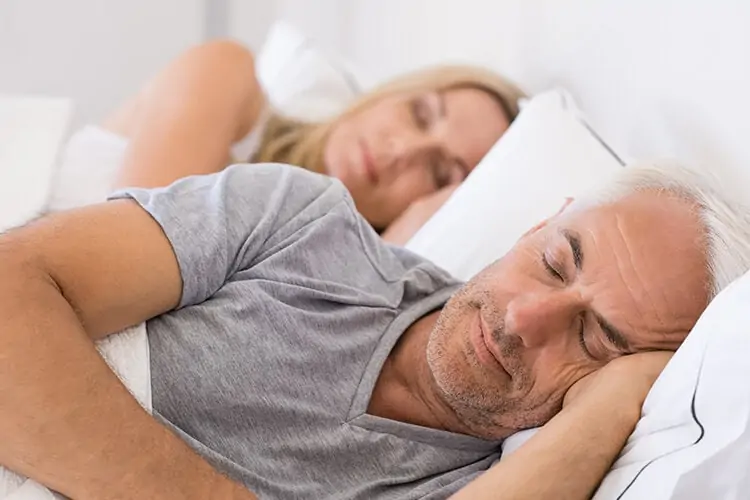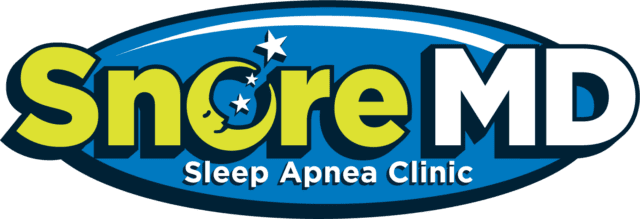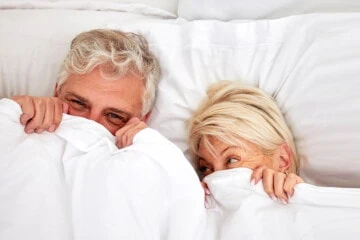
At our Snore MD sleep clinics, we love great sleep! It’s everything we do. We wake up thinking about sleep and go to bed, well, thinking about great sleep!
Sleep directly affects your mental and physical health and the quality of your life. Fall short, and it can take a serious toll on your daytime energy, productivity, emotional balance, and even your weight. Yet many of us regularly toss and turn at night snoring, and struggling to get the sleep we need. There isn’t always one easy solution. However, getting tested for any sleep disorders or adjusting your current sleep hygiene routine are great places to start!
Tip 1: Get precision fit with your next mask upgrade
As simple as it sounds, one of the most common issues we come across for CPAP Therapy patients is their mask fitting!
Every person is different and unique, and using a mask that fits you properly means your CPAP can work smoothly to help improve your sleep.
When you are next considering a mask upgrade, ask Snore MD about their complimentary ACCUFIT mask-fitting service with your mask purchase. Accufit is the world’s first precision mask fit system powered by artificial intelligence and can be completed in a clinic or the comfort of your home in just a few minutes!
Don’t forget about our $100 mask trade-in offer!
Tip 2: Keep in sync with your body’s natural sleep & wake cycle
It may not seem like a big deal to go to bed a few hours later on the weekend or sleep in late on Sunday, but adjusting your sleep schedule messes with something called your “Circadian Rhythm” which regulates your energy and brain focus for the day.
- Try to go to sleep and get up at the same time, 7 days a week. Not easy, but keep track of when you are tired in the late evening and when you can wake up without an alarm. Keep a journal beside your bed to log your energy levels at bedtime and wake time!
- Be frugal about having that afternoon nap. It might be tempting to lie down in the early afternoon, but needing naps regularly is an indication of a larger sleep issue! If a nap is needed, limit it to 15 to 20 minutes in the early afternoon (minimum 6 hours before your regular bedtime).
- Avoid that post-dinner nap! It may be tempting, but post-dinner naps affect your sleep later in the night. If you are feeling sluggish, do a few things around the house! A load of laundry, take the dog for a walk or a family walk!
Tip 3: Limit and plan your exposure to light (Especially those screens!)
We all know about Melatonin and its importance in regulating high-quality sleep. Melatonin hormone levels in your body reflect how accurately you control your exposure to light and screen time!
During the day:
- Open those windows!! It might be tough in BC, but try and get as much natural light into your workplace or home in the Early AM.
- Spend more time outside during daylight. Take your work breaks outside in sunlight, park farther away at the grocery store and enjoy the light, even if a bit cloudy!
- Use an Artificial Sunlight Light. This simulates natural light and can help everyone get through those short winter days!
At night:
- Avoid computer and phone within 2-3 hours of your scheduled time to go to sleep. The blue light emitted by your phone, tablet, computer, or TV is especially disruptive to the all-important production of melatonin.
- Read a book before bed! Keep it old school and read a non-backlight paperback book!
- Make sure your bedroom is pitch black. Use heavy curtains or shades to block light from windows and cover any light-emitting electronics (such as a heater).
Tip 4: Mild snoring solution – Exercise during the day
People who exercise regularly sleep better at night and feel less sleepy during the day.
- The more intense you exercise, the more powerful the sleep benefits. Don’t be afraid to break a sweat!
- It can take several months of regular exercise before you feel the full sleep improvement effects. Be patient and stick with it!!
- For better sleep, time your exercise right. Working up a sweat late at night may sound great, but it can make you too warm to sleep comfortably! Early AM workouts are shown to be best for improving sleep quality scores.
- If evening exercise is the only option, try and finish your sweat session 4 hours before bed, or try a relaxing exercise like yoga.
Tip 5: Watch what you put in your body!
What you eat is reflected in how you sleep! Healthy bodies start with the right fuel, so make an effort to be conscious of what you eat throughout the day. Keep a log for a few days; studies show keeping a log is an easy and quick way to become more mindful of what you put in your body!
- Limit your Joe (or tea)! Recent studies show that caffeine can cause sleep problems up to ten to twelve hours after drinking it!
- Avoid big dinners in the evening. Try to make dinnertime earlier in the evening (before 6 pm), and avoid heavy foods such as pasta and steak within 3 hours of bed.
- Avoid that final beer before bed. While a brandy or scotch may help you relax at the time of consumption, it interferes with your sleep cycle once you’re sound asleep.
- Don’t smoke! Nicotine is a drug that can disrupt your sleep, plus the damage to your lungs can cause long-term oxygen issues at night during your sleep.
- Cut back on sugary foods and refined carbs. Sugar is a main cause of sleep issues. Avoid candies, white bread, and simple pasta before bedtime (or anytime) to help prevent sleep issues during the night.
For those suffering beyond daily habits, visit your nearest Snore MD sleep clinic. Our sleep clinics will take the time to listen to your issues and advise you on suitable sleep solutions.
About the author:
Michael Davis is Snore MD’s Director of Optimal Patient Care and community awareness. Driven by a passion for quality of everyday life, Michael became a Respiratory Therapist in 2009 with the goal of helping Canadians sleep better. With experience in critical care medicine, sleep medicine and pulmonary disorders, Michael leads a team of 15 skilled Sleep Clinicians and Respiratory Therapists to help thousands of British Columbians Sleep Better – Live Better.




